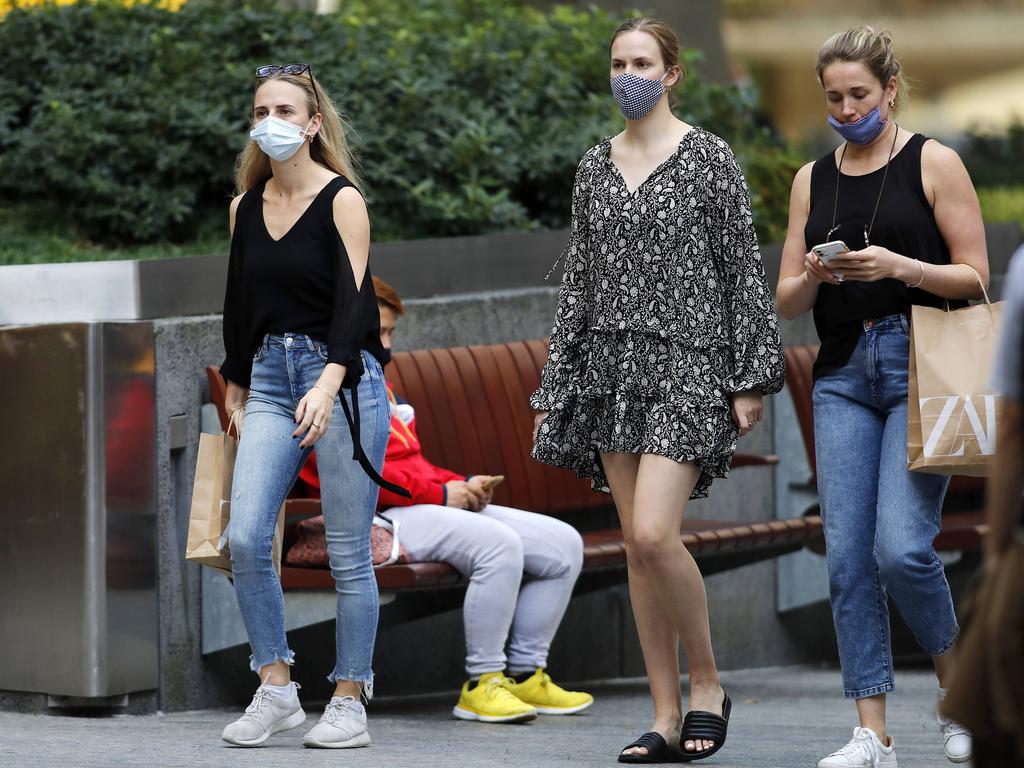A leading Australian doctor has said that restrictions on outdoor activity at the height of the Covid pandemic were a massive mistake that should never be repeated.
Professor Peter Collignon, an infectious disease expert who previously worked for the World Health Organisation, said Australia should “never in the future stop people from being outdoors”.
He said the virus was rarely spread between passers-by outdoors – and that he had warned against the draconian measures at the time.
Several studies have shown that as few as one in 1,000 cases of Covid were transmitted from person-to-person outdoors.
Professor Collignon is among many in the medical field who have now come out against aspects of Australia’s pandemic response, as calls for more independent reviews continue to mount.

“No matter how hard you look, you cannot find (much Covid) transmission outdoors,” he told Daily Mail Australia. “We should never in the future stop people from being outdoors.
“There was a report in the US of someone talking to somebody for 15 minutes outside and getting Covid, and there were some building workers in Singapore who probably got it outdoors.
“But basically, outdoors, there’s very little transmission of Covid. The effective R (the rate of passing Covid on to another person) was much less than one. In other words, you didn’t transmit it much.”
Professor Collignon said the rules against being outdoors in various states during 2020 and 2021 were “absolutely atrocious” in retrospect.
He said there was risk of picking up Covid in enclosed spaces, such as on public transport or inside a home, but if you travelled alone to an outdoor venue then the chance of transmission was low.
He also criticised the closures of beaches, national parks and playgrounds as the risk of transmission was “minimal”.

In October last year, the Premiers of Victoria and Queensland pushed back against an independent review of Australia’s response to Covid-19 which found “significant mistakes were made”.
Both states introduced strict laws during the pandemic, with Queensland closing its borders for prolonged period and Victoria have one of the longest lockdowns in the world.
Daniel Andrews and Annastacia Palaszczuk both defended the decisions made by their governments during the pandemic after the 97-page Fault Lines review was released.
The review found state and federal governments “overreached” with politically driven health orders and excessive lockdowns which failed to protect the elderly, disregarded the young and abandoned disadvantaged communities.
Mr Andrews dismissed the report as “academic views”.

“There was nothing academic about the fact that we had to have lockdowns because we didn’t have any vaccine,” Mr Andrews said.
“There was nothing academic about doing everything we could, very difficult decisions with real impact, to save lives.”
Mr Andrews, who oversaw 262 cumulative days of lockdowns in Melbourne, said “there are many things we wish we didn’t do – many decisions we wish we didn’t make’’.
In a recent thread on Twitter, Prof Collignon responded to his own claim made in late 2021 that case numbers would decrease “as vaccination rates go up”.
The infectious diseases expert admitted that “vaccines are much less effective at preventing mild disease than I thought they would be” and declared that “hybrid immunity is the most effective”.
In January of 2023, Prof Collignon openly criticised gain-of-function research, asking if there had been any tangible benefits to developing diseases in a lab.
“I can’t see how it has helped with any better vaccines, or drugs for flu, coronavirus,” he said. “All risk and pain with no gain.”
The government announced earlier this month that it had accepted advice from the nation’s vaccine advisory to expand eligibility for a Covid booster to all Australian adults from February 20.
The Australian Technical Advisory Group on Immunisation has recommended that all people aged 18 and over receive a top-up jab, no matter how many doses they’ve already received, as long as they have not been infected with the virus in the last six months.
Children will not be offered another vaccine unless they have a health condition that puts them at risk.
A fifth dose has previously only been available to those who were severely immunocompromised. A fourth dose was only offered to Australians aged over 30.
The new advice does not require people to roll up their sleeves every six months.
